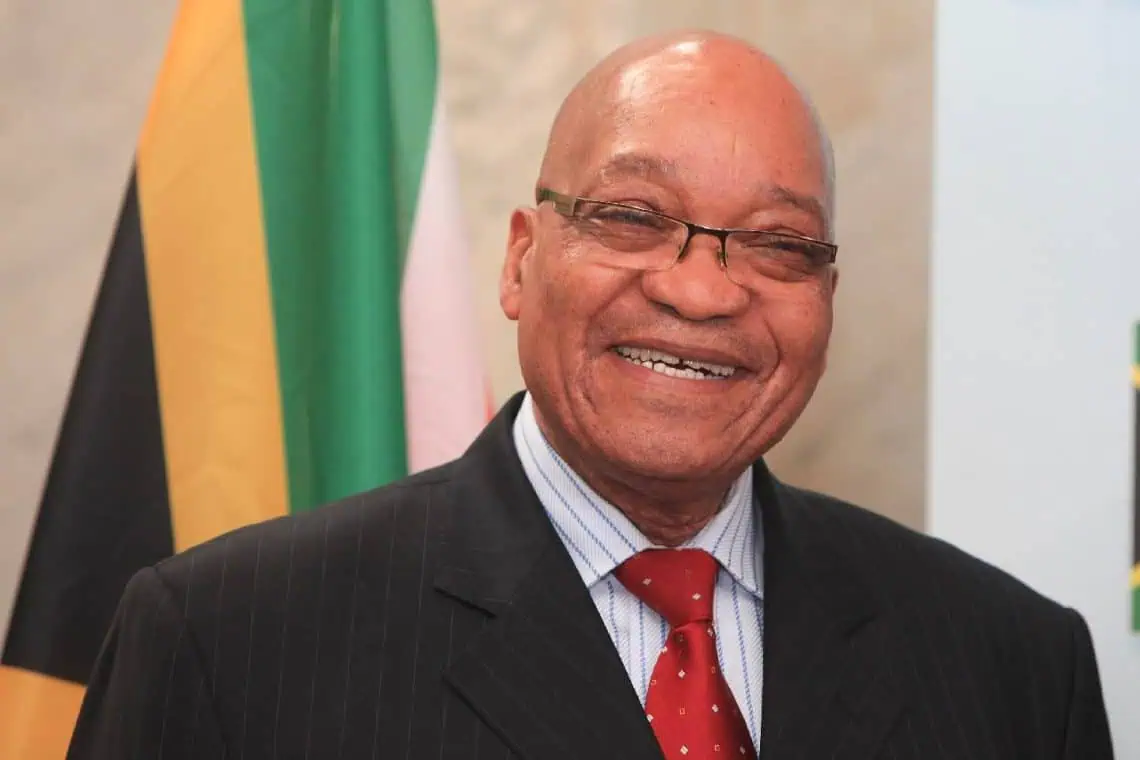Picture this: Jacob Zuma, the shower-singing statesman, swaps his Nkandla dance floor for a debt-restructuring reality show. “Celebrity Debt Workout: Presidential Edition” – where the ex-president auctions off his infamous fire pool as a “therapeutic hot tub” and trades cattle for crypto to chip away at his tab. It’s a satirical fever dream, but in reality, Zuma’s R28.9 million legal bill from his corruption trial is no laughing matter. As his lawyers plead poverty in court this October 2025, South African taxpayers are left wondering: Will he ever pay up? And more pressingly, who’s really footing this endless bill?
The Origins of the Mega-Bill: From State Sponsor to Courtroom Debtor
Jacob Zuma’s entanglement with the law dates back to the 1999 Arms Deal, a multi-billion-rand procurement scandal that painted him as the recipient of shady bribes via his financial advisor, Schabir Shaik. Facing 16 counts of fraud, corruption, and money laundering, Zuma’s defense didn’t come cheap – and it wasn’t supposed to be on him, at least not initially.
In 2006, under President Thabo Mbeki, the state agreed to foot Zuma’s legal bills, viewing the charges as politically motivated. This funding spree ballooned as Zuma ascended to the presidency in 2009, with taxpayers covering everything from barristers to briefs. By 2018, when the Pretoria High Court axed the agreement, the tally hit between R16.78 million and R32 million. The precise figure? R28.9 million – a sum the Supreme Court of Appeal (SCA) in 2021 ordered Zuma to repay in full, adding punitive costs after he accused judges of bias.
Fast-forward to 2024: The Presidency, State Attorney, and Solicitor-General launched a fresh push to collect, demanding interest on the debt. Zuma countered with everything from blaming his late lawyer to cries of “state misconduct.” As of October 2025, the saga drags on in the High Court, with no repayment in sight.
Zuma’s Finances Under the Microscope: Pension vs. Presidential Pricetag
So, can Zuma cough up? His lawyers say a resounding no – not even with his cushy ex-president perks. Zuma pulls in a taxable pension equivalent to his final presidential salary: roughly R2.98 million annually, or about R248,000 monthly. That’s no pauper’s purse, enough for a comfortable Nkandla lifestyle with multiple wives and a small herd of cattle.
Yet, net worth estimates paint a murkier picture. CelebrityNetWorth pegs it at $20 million (around R360 million), buoyed by property like the sprawling Nkandla homestead – which itself sparked a R246 million upgrade scandal. Other tallies whisper R290 million, but whispers of bankruptcy echo louder. Zuma’s team argues he’s asset-poor: no liquid cash, mounting family obligations, and legal fees eating into every rand. Even liquidating his pension over decades wouldn’t dent the R28.9 million principal, let alone interest – a claim the state dismisses as a “waste of time.”
In a bizarre twist, Zuma once floated pinning the bill on his deceased advocate – a move the State Attorney branded “bizarre” and outright evasion. With a High Court showdown looming next week, the ex-prez’s wallet woes could seal his fate as SA’s most infamous IOU.
The Ripple Effect: How Zuma’s Tab Erodes South Africa’s Trust Fund
Beyond the balance sheet, Zuma’s legal limbo is a gut punch to public faith. His nine-year presidency (2009–2018) wasn’t just about tunes and takings; it birthed “state capture” – a web of graft via the Gupta family that siphoned billions from SOEs like Eskom and Transnet. The Zondo Commission laid it bare: systemic corruption under Zuma hollowed out institutions, sparking the 2021 July riots that claimed 354 lives and R50 billion in damage.
Afrobarometer surveys show trust in government plummeting from 62% in 2011 to 37% by 2021, with Zuma’s shadow lingering. Tax compliance? Stalled – why pony up when leaders treat the fiscus like a personal piggy bank? A 2018 Council on Foreign Relations report linked Zuma’s scandals directly to waning taxpayer confidence, exacerbating SA’s fiscal woes amid 32% unemployment and load-shedding blackouts.
This isn’t abstract: Every unpaid rand from Zuma’s tab symbolizes a betrayal. As the state chases shadows, ordinary South Africans foot the bill – literally, through higher taxes and slashed services. Public trust erosion? It’s the slow bleed turning democracy’s promise into disillusionment.
Payday or Pipe Dream? SA’s Reckoning with Ex-Leader Accountability
If Zuma’s “never repay” plea sticks, it sets a perilous precedent: Leaders above the law, taxpayers eternally on the hook. The state, pushing for interest (potentially ballooning the debt to R35 million+), vows no quarter. But with Zuma’s MK Party stirring populist pots and elections on the horizon, politics could trump justice yet again.
For now, the fun hook fades to frustration. No reality TV bailout here – just a nation grappling with its past, one court date at a time. Will Zuma pay up? History says don’t hold your breath. But SA deserves better: accountability isn’t optional; it’s the price of progress. As the gavel falls next week, all eyes are on whether the ex-prez’s tab finally gets tallied – or tallied higher on us all.
